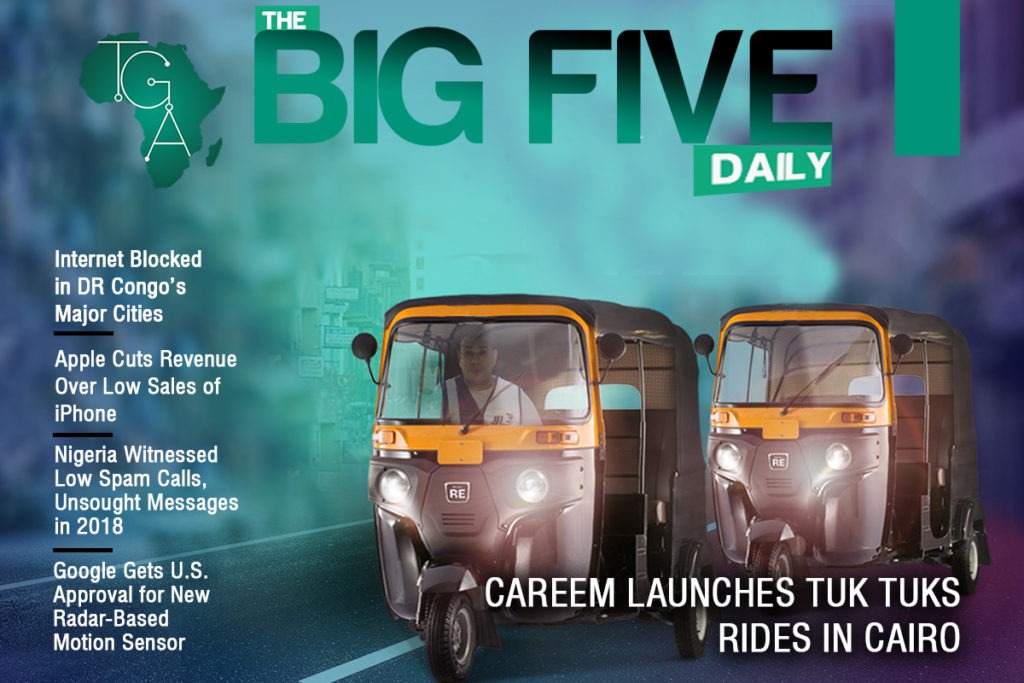Hello guys, we are back again and we kick off today’s big 5 with news emerging from DR Congo.
According to NetBlocks, Internet has been halted in some major cities in DR Congo while the country awaits the release of the election results held on the 30th of December, 2018. The internet shutdown, which affected the capital, Kinshasa, was reported to have been instigated by the Government so as to limit half-truths and forestall instability.
This act has met criticism from various quarters, citing fraud in a presidential election earlier flawed by violence and logistics delay.
Weeks after launching its bus-booking service in Egypt, Careem has introduced yet another product, Tuk Tuks in the country’s capital, Cairo – an area characterised with traffic. Tuk Tuks are now accessible as a ride alternative inside Careem’s main app, Menabytes reports. The service is currently available in select areas in Cairo and Giza.
According to research conducted by Truecaller, Nigeria – West Africa was ranked among the markets that have experienced the lowest spam calls and unsought messages in 2018 while South Africa placed highest in Africa, in fact, was included among the world’s top 20. Contrary to the 2017 report where Nigeria ranked ninth behind India, USA, Brazil, Chile, South Africa, Mexico, Turkey, and Peru in the world’s top 20 list, this is indeed, an interesting development.
Apple Inc. on Wednesday, the 1st of January cut its quarterly sales forecast, with CEO Tim Cook blaming slow sales of iPhone in China. Apple Inc’s economy has been hauled down by uncertainty amidst the U.S.-China trade war.
The company pegged the forecast for the new fiscal quarter at almost US$84bn down from a prior estimate of US$89bn. This is due to their performance at the last fiscal quarter which was below analysts’ estimate of $91.5 billion
Google has gotten approval from U.S. regulators, the Federal Communications Commission to deploy a radar-based motion sensing device, Project Soli. Soli, a new sensing technology that uses small radar to detect touchless gesture interactions and custom-made interaction sensor for motion tracking of the human hand.
The FCC is conceding Google an agreement to operate the Soli sensors at higher power levels than currently approved, which can also be operated in the aeroplane.
That’s all for today folks. Do join us tomorrow for more.
